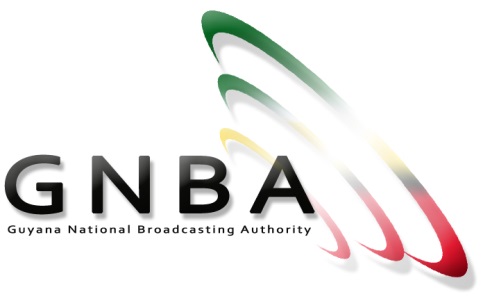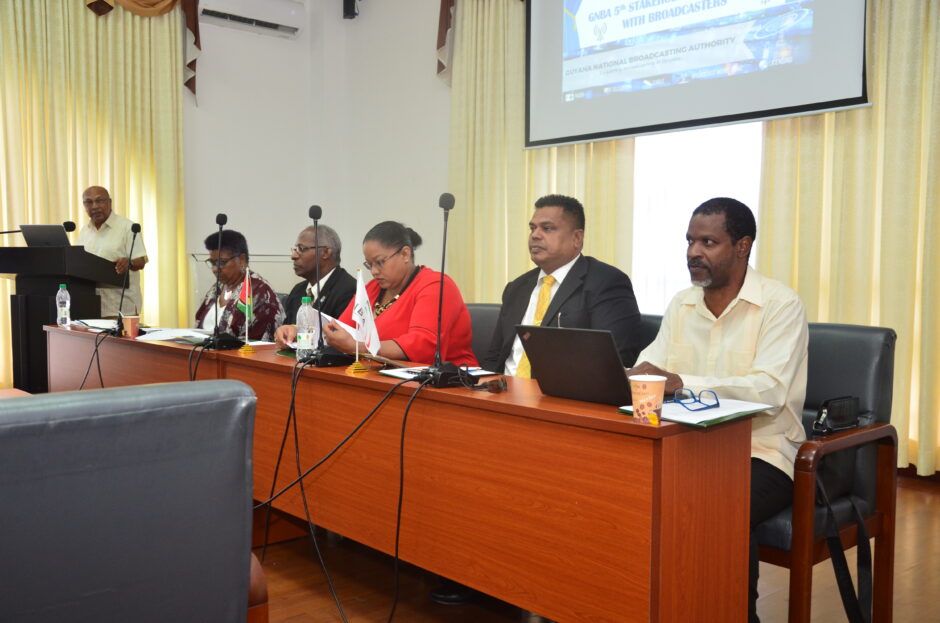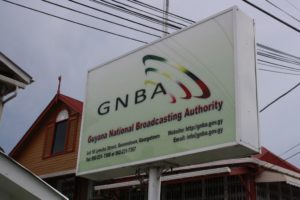GNBA proposes redefining broadcast zones
COGNIZANT of the fact that some broadcasters lack the capacity to provide maximum coverage within their zones, the Guyana National Broadcasting Authority (GNBA) is proposing the redefining of zones to allow for sub-zones at a lower cost. In floating the idea at GNBA’s 5th Stakeholder Engagement at the Arthur Chung Conference Centre on Wednesday, GNBA Chairman, Leslie Sobers said such a move would require further amendments to the Broadcasting Act. The Broadcasting Act, amended in 2017, now includes three classes of broadcasting services: commercial, non-commercial and community classes; and three types of broadcasting zones – primary, secondary and tertiary.
More than two years after the amendments came into law, Sobers said it is evident that some broadcasters lack the capacity to fully cover their zones. “It is a reasonable and legitimate expectation that a broadcaster, having secured a licence to broadcast in a particular zone and having satisfied the requirements that he or she is capable of transmitting within that particular zone, would ensure that his or her operations span the length and breadth of that zone,” the GNBA chair told the broadcasters present while alluding to Section 32 (h) of the Act.
That section states: “In the granting of licences and in the setting of conditions, the Authority shall ensure that all equipment for transmission, dissemination or distribution of programmes by wired, wireless, cable or any other means should meet a technical standard which ensures that listeners and viewers within the prescribed coverage area are able to receive signals with reasonable ease, minimum difficulty and maximum clarity.”
Based on the reality on the ground, Sobers said sub-zoning is likely the next best option. “Given the fact that some broadcasters are not covering the length and breadth of their zones for which they have received broadcasting licence, we can issue licences for sub-zones, which would simply mean proposing to the National Assembly that there should be a review of the Broadcasting Act,” Sobers recommended.
He posited that dividing the zones into sub-zones can also result in the lowering of fees, and increased broadcasters within the three zones. He added, too, that further amendment to the Act should expand the reach of community radios. “Amend the law to allow community radio to operate in the primary zone to fill the gap of the inability of broadcasters to reach the full length and breadth of the Primary Zone. In that case, we could see community radios existing in places like Timehri, Vergenoegen, Mahaicony, and so on,” Sobers explained while putting his proposals on the table.
Under the existing law, the primary zone comprises the municipality of Georgetown, Region Three up to the Essequibo River, all of Region Four and Region Five, east of Region Four to the Abary River. Additionally, there are four secondary zones with zone one covering all of Regions One and Two and the Essequibo Islands being part of Region Three. Secondary zone two includes all of Bartica, while Secondary zone Three covers all of Region Six, including New Amsterdam and part of Region Five, west of New Amsterdam to the Abary River. The fourth and final Secondary zone includes all of Region 10. Meanwhile, the Tertiary zones are all of Region Nine, including Lethem; all of Region Eight, including Mahdia and Region Seven, excluding Bartica. In the Primary zone, the base fee has been set at $1.2M for TV and cable operators while radio operators pay $2.5M.
In the Secondary zone, the fee is $600, 000 or 3.5 per cent of gross revenue of the preceding year, whichever is greater for TV and cable operators, while radio operators pay $1.25M.
In the Tertiary zone, the fee has been set at $300, 000 for TV and cable providers and $625,000 for radio operators. Radio and TV stations providing community broadcasting services are charged a fee of $150,000. If sub-zones are developed, the fees would be reduced. The amendment also provided for public service programmes, the prohibition of programmes containing hate speech, while simultaneously addressing an international agreement for broadcasting any channel or programme as part of the local service.
Source: Guyana Chronicle
Written by Chief Reporter: Ms. Svetlana Marshall



